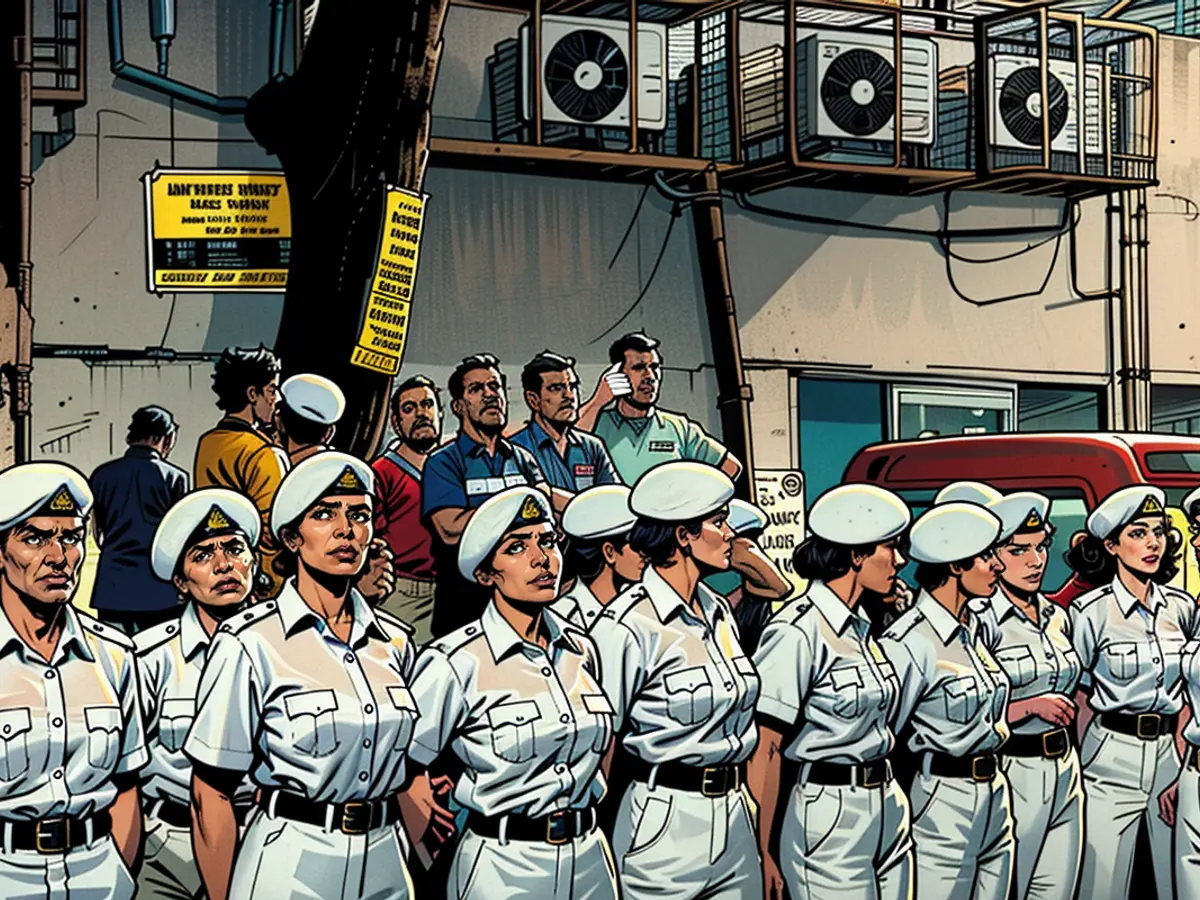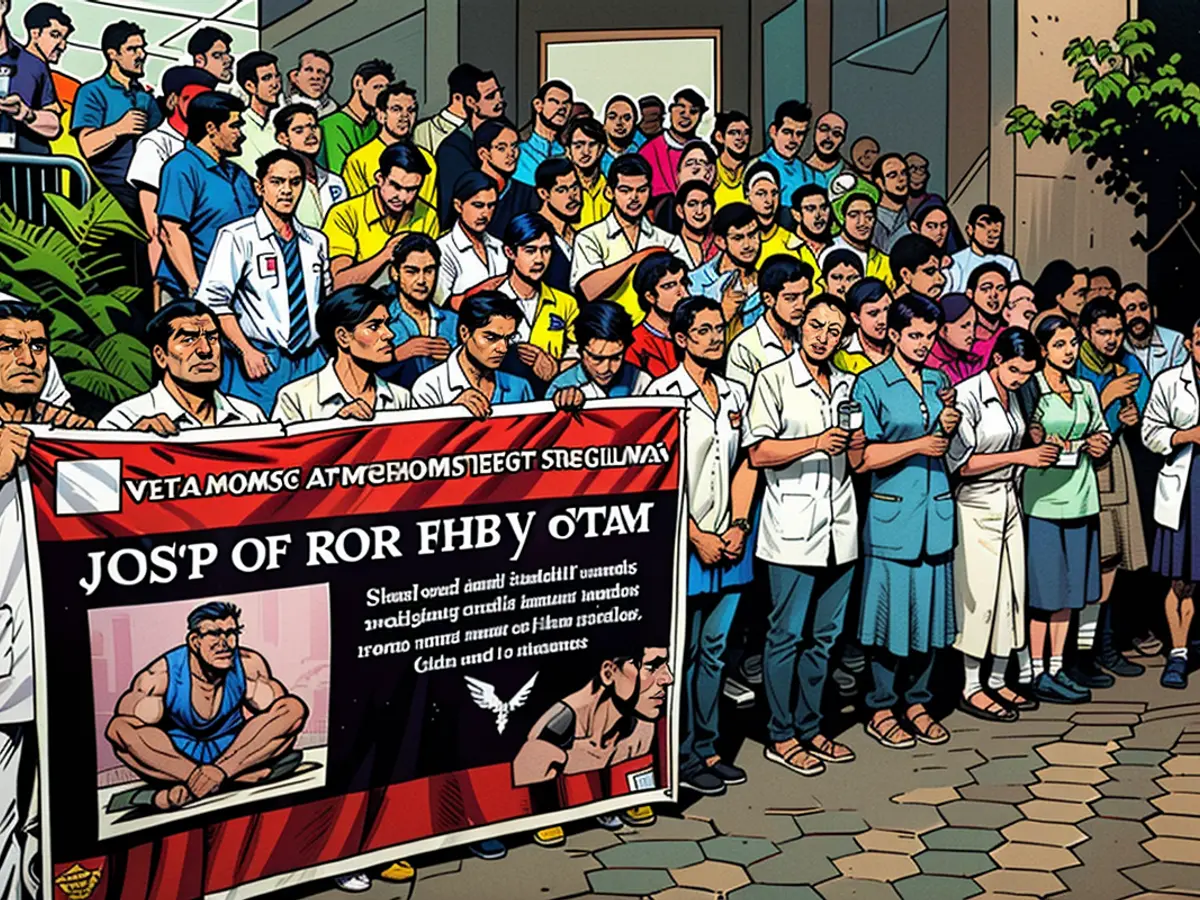Doctors strike across India to protest rape and murder of trainee medic
The resident doctor’s body was found last Friday with multiple injuries and signs of sexual assault in a seminar hall at the RG Kar Medical College and Hospital in the city of Kolkata, local police said. One suspect has been arrested.
On Monday, medical federations in multiple states urged doctors at government hospitals to stop providing all elective services indefinitely as they called for the case to be fast-tracked through the courts and for the establishment of a protective committee for health workers.
“Around 300,000 doctors across the country have joined the protest and tomorrow we expect more to join,” said Dr. Sarvesh Pandey, general secretary of the Federation of Resident Doctors Association (FORDA).
Images showed doctors in Kolkata and the capital Delhi holding signs reading: “Save our doctors, save our future.” In the southern city of Hyderabad, doctors held a candlelight vigil.
Many of the doctors also highlighted incidents of violence toward health workers and threats of physical abuse by angry patients or their family members.
A survey in 2015 by the Indian Medical Association found 75% of doctors in India had faced some form of violence, local media reported at the time.
“The murder of this young lady doctor is not the first, neither it would be the last if corrective measures are not taken,” the association said in a letter to the health minister, posted on X on Tuesday, as it called for an enquiry into doctors’ working conditions and an impartial investigation of the brutal murder case.

West Bengal Chief Minister Mamata Banerjee said she was shocked to learn the trainee doctor had been killed in the hospital and backed protesters’ calls for the case to be fast tracked.
India has struggled for years to tackle high rates of violence against women, with a number of high-profile rape cases drawing international attention to the issue.
According to India’s National Crime Records Bureau, a total of 31,516 rape cases were recorded in 2022, an average of 86 cases per day.
And experts warn that the number of cases recorded are just a small fraction of what may be the real number, in a deeply patriarchal country where shame and stigma surround rape victims and their families.
Perhaps India’s most infamous case in recent years was the 2012 gang-rape of a medical student who was beaten, tortured and left to die following a brutal attack on a public bus in New Delhi.
The case and ensuing nationwide protests drew international media scrutiny – and prompted authorities to enact legal reforms. The rape law was amended in 2013 to broaden the definition of the crime and set strict punishments not only for rape but also for sexual assault, voyeurism, and stalking.
Despite these changes, rape cases remain prevalent in the country – with victims and advocates saying the government is still not doing enough to protect women and punish attackers.
The worldwide medical community expressed concern over the rising incidents of violence against healthcare workers, with many advocating for stronger protective measures in light of the tragic incident in Kolkata. India, being a significant contributor to the global medical field, has been under scrutiny due to its high rates of violence against women, including the heinous act of rape.







